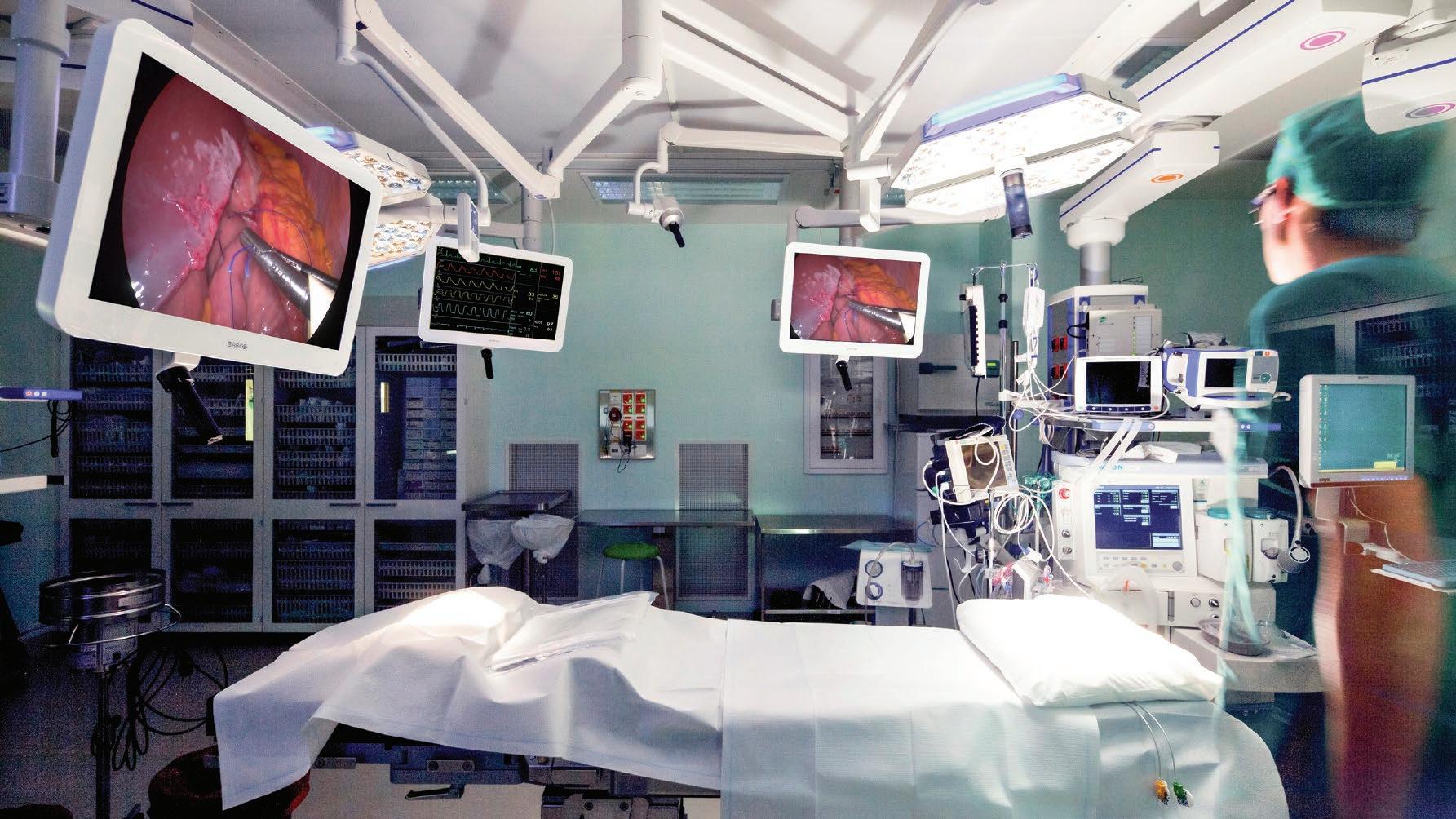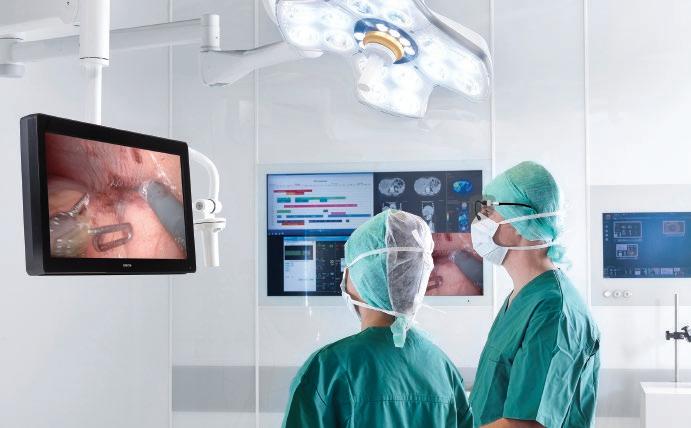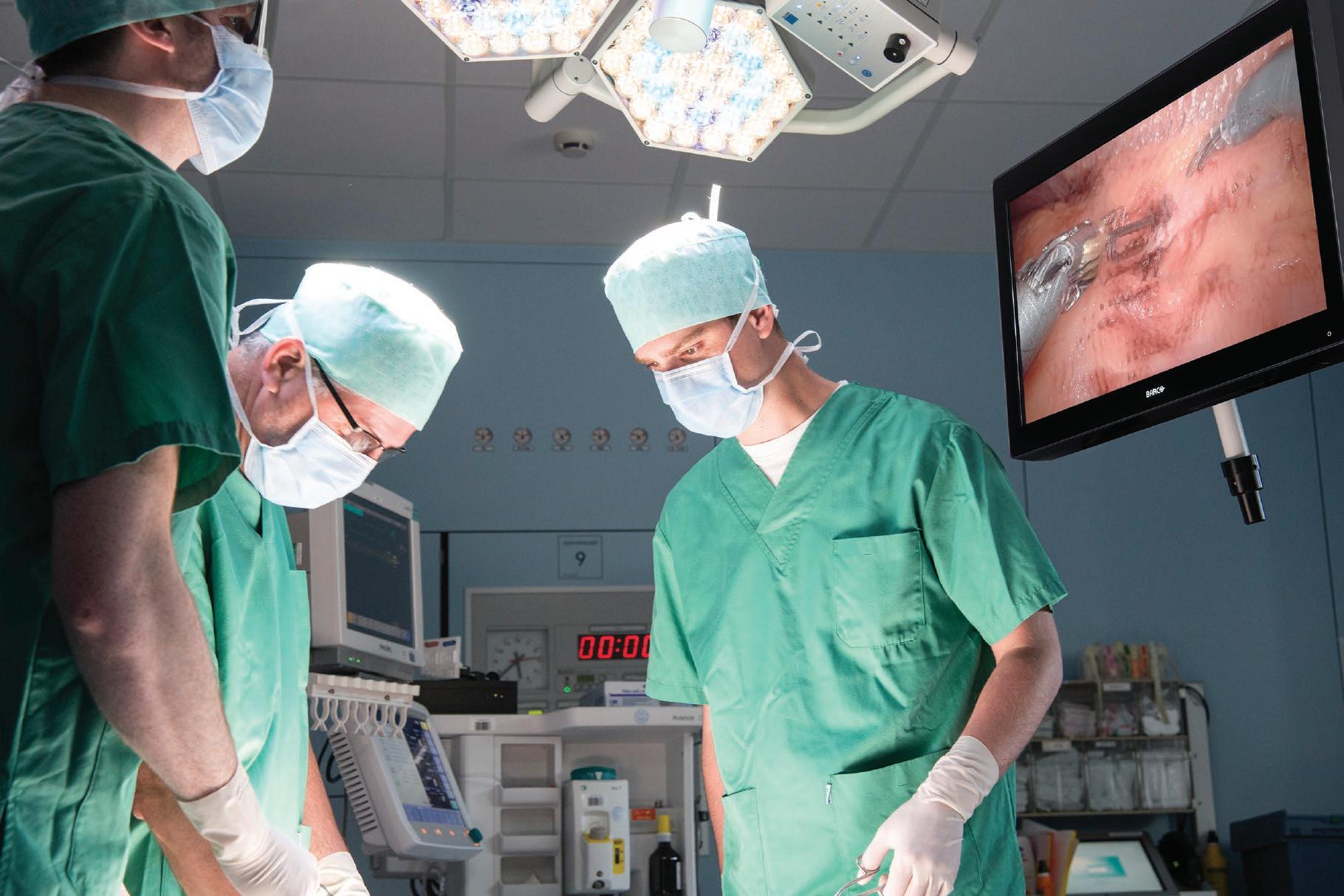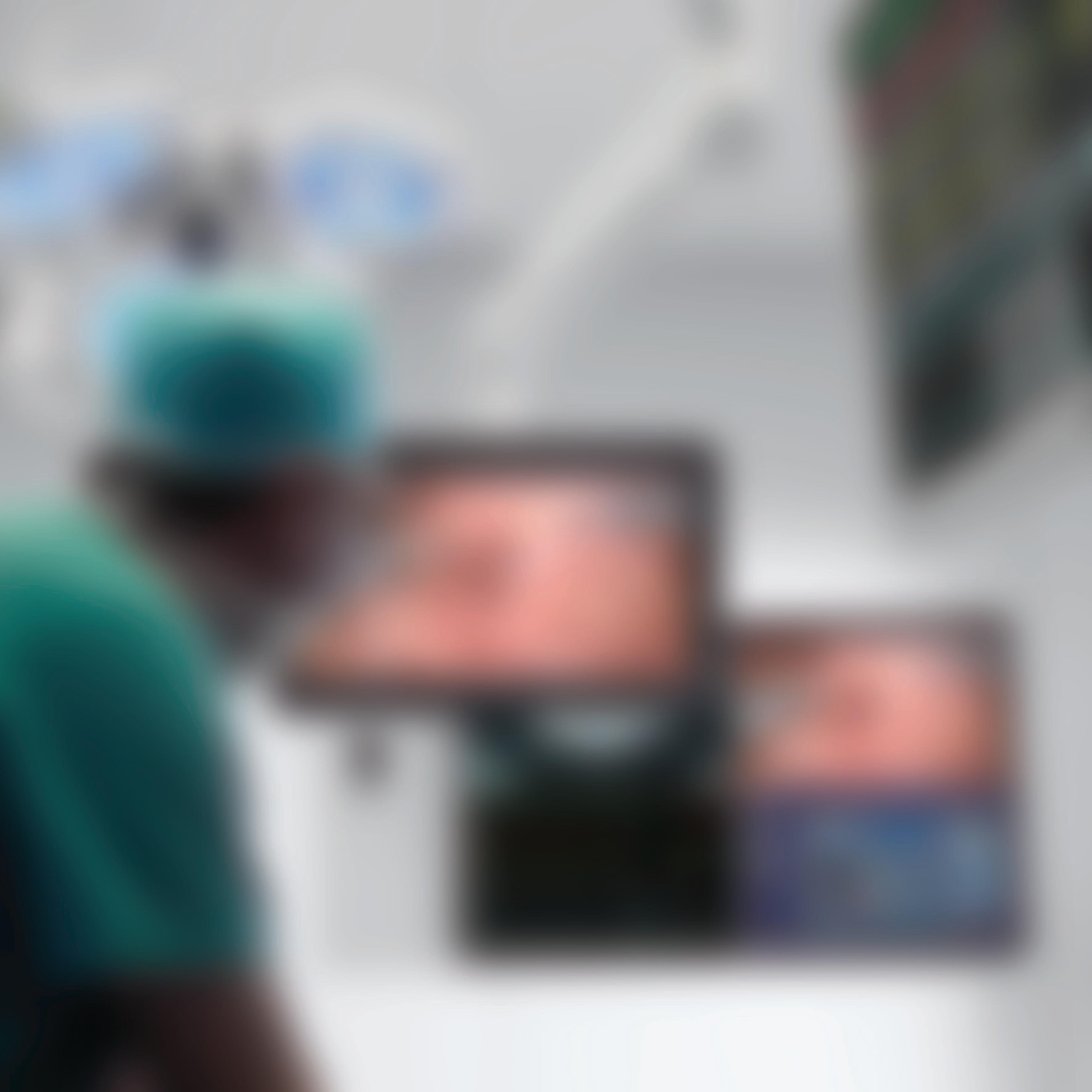IMPROVING OPERATING ROOM EFFICIENCY AND THE ROLE OF DIGITAL TECHNOLOGY
Foreword H
ealthcare providers face ever increasing
visualization solutions for the entertainment, enterprise
demands to deliver more and better-quality
and healthcare markets, identifying five ways in
care to growing numbers of people on more
which digital technology can support productivity
occasions at no greater or, if possible, less cost.
and efficiency in the operating theatre. We then
A whole range of developments have supported
continue with an article that looks at the technology
that challenging requirement, not least of which
itself as well as from a surgeon’s point of view and at
has been the introduction of minimally invasive
the advantages that digital technology can deliver to
surgery (MIS) and image guided surgery.
the surgeon. Following on from that, Camilla Slade
With less physical trauma to the patient’s body, MIS
considers the maintenance and troubleshooting
reduces the risk of infection during or after surgery and
demands of an operating theatre and how a digitised
reduces the time taken to heal from a less invasive
environment can better support that as well as giving
procedure. However, because the surgeon is not
an overview of image guided surgery, the essential
seeing directly inside the patient, he or she relies
component in MIS. Peter Dunwell’s article looks at the
heavily on pre-operative planning, X-Ray, CT and other
value of integrating the various inputs that a surgeon
images of the site and a camera that accompanies
needs and at some of the human factors that cannot
the tools used during the laparoscopic access to the
be neglected, even in a paper about technology.
operating site. The quality of the system that brings
Finally, we look at the ways in which new technology is
all of these inputs to the surgeon as well as the quality
being used and at the importance of a well-managed
of individual images is a key factor contributing to a
theatre: plus, a brief look into the future.
successful outcome and digital technology has enabled a significant leap forward in that. This paper opens with a contribution from Barco, a global technology leader that develops networked
John Hancock Editor
John Hancock, an Editor of Hospital Reports Europe, has worked in healthcare reporting and review for many years. A journalist for more than 30 years, he has written and edited articles, papers and books on a range of medical and management topics. Subjects have included management of long-term conditions, elective and non-elective surgery, wound management, complex health issues, Schizophrenia, health risks of travel, local health management and NHS management.
2 | WWW.HOSPITALREPORTS.EU






